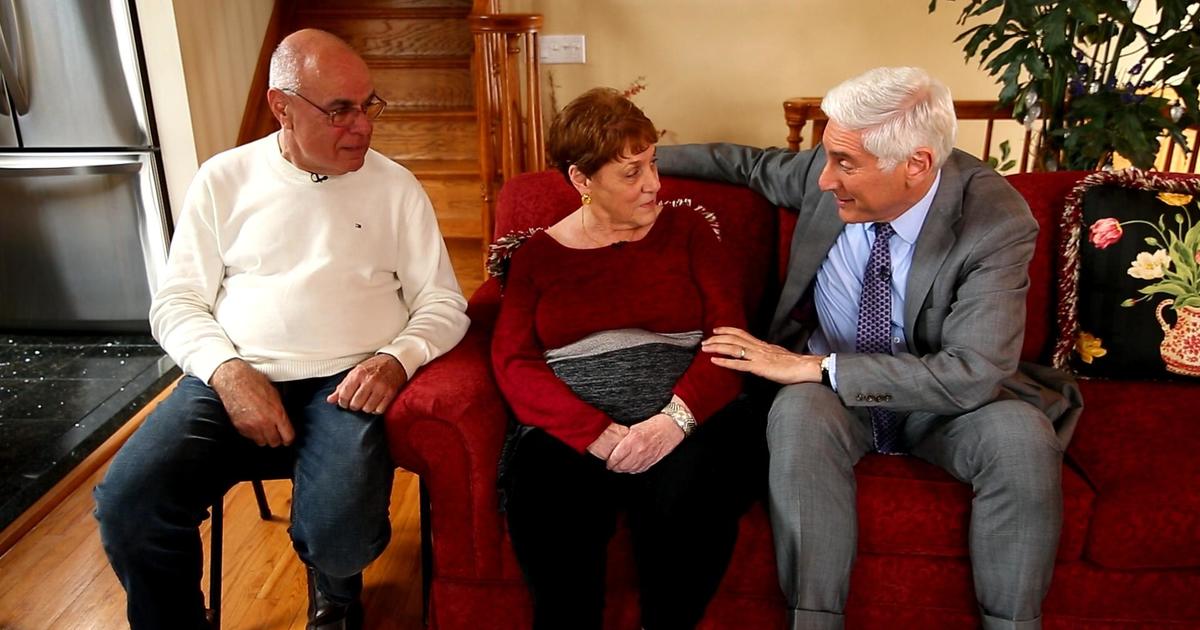
For 11 years I pleaded with my challenging elderly father to allow a caregiver to help him with my ailing mother, but he always insisted on taking care of her himself. Every caregiver I went ahead and hired soon sighed in exasperation, “Jacqueline, I just can’t work with your father. His temper is impossible to handle and he’s not going to accept help until he’s on his knees himself.” When my father’s inability to continue to care for my mother nearly resulted in her death, I stepped in despite his very loud protests. It was so heart-wrenching to have my once-adoring father be so loving one minute and then some trivial little thing would set him off and he’d call me nasty names and throw me out of the house the next.
Posts published in “Awareness”

When Jos� Belardo was diagnosed with Alzheimer's disease at the age of 50, his wife, Elaine's first thoughts were of loss and hopelessness. Her thoughts of despair took her straight to the end of what she believed would be the disease process. And she found herself obsessing about what she already knew about the disease — the suffering, stress and sadness of watching a loved one lose themselves without hope of finding their way back.
Juliette Bradley, who is the Communications Director for the Alzheimer's Association - Heart of America Chapter makes sure that Alzheimer’s patients and their families also know there is hope — and help. She says although the diagnosis of Alzheimer’s is overwhelming for most people, the Heart of America Chapter is here to help anyone who is in the midst of an Alzheimer's journey.

It’s OK to ask for help.”Q&AHere's a Q&A with Gretchen Halstead, service excellence officer at Westchester Medical Center, the flagship of the Westchester Medical Center Health Network, about caregiver services they offer. “People generally start care-giving by taking their mom or dad or spouse or neighbor to a medical appointment and, over time, as that person’s health deteriorates, they are taking on more and more responsibilities such as administering injections, tube feeding, wound care, helping with dressing and bathing, along with managing finances with little support,” Accius said. A “majority of these people are also working, and they have to juggle work and care-giving responsibilities. It is a very stressful situation because they are caring for someone they love.”

A 52-year-old courier from Chengdu, Sichuan province, China is winning the hearts of netizens for his filial piety for always bringing his 92-year-old mother to work every single day.
Cai Yujun, a delivery man, has been caring for his mother, Yang Suxiu, who was diagnosed with Alzheimer’s disease seven years ago, according to The Cover via CGTN.
Since it’s unwise to leave his mother alone due to her condition, Cai decided to bring her along in his everyday errands.
This has led Cai to let Yang stay with him every year from January to April as she joins him in his work.
“When we made deliveries to the office building, the security guard often refused to let my mother in.
![]()
Gincy Heins put together this inspiring anthology of hope, courage, and love.
Proceeds will help several Alzheimer’s groups.
Please share!

That 5.7 million includes an estimated 5.5 million people age 65 and older and approximately 200,000 individuals under age 65 who have younger-onset Alzheimer's.
Simply put, the number of Americans living with Alzheimer’s disease is growing and growing fast.
Alzheimer's disease is the sixth-leading cause of death in the United States, and the fifth-leading cause of death among those age 65 and older.
Although deaths from other major causes have decreased significantly, official records indicate that deaths from Alzheimer's disease have increased significantly.
Between 2000 and 2015, deaths from Alzheimer's disease as recorded on death certificates increased 123 percent, while deaths from the number one cause of death (heart disease) decreased 11 percent.
![]()
Her mother’s dementia, like Montana weather, stormed through her home, unbidden and treacherous.
Every part of me hurt for my mom and what I didn’t do for her.”Eventually, the daughter drifted back to sleep.
I was writing about dementia, the cruelty of it, the guilt that I carry about my mom’s death, and my role in it.
She loved me unconditionally, gave me life and more support than a daughter could ever hope for.
They said they would be there for us to manage her end of life care.

Former Yankees left-hander and All-Star Fritz Peterson was so looking forward to coming back to Yankee Stadium in June for Old-Timers’ Day.
Peterson, 76, who overcame prostate cancer years ago, is fighting a new health battle.
“I really wanted to be there for the fans, I was there like seven years ago, but I just can’t make it.
“I was diagnosed last September, but when I say that I don’t even know what year that was,’’ Peterson said.
“It’s sad,’’ he said of his health situation, “but what can you do?’’Fritz Peterson will keep fighting.
![]()
Last month, the initial column in our series on dementia discussed dementia as a progressive biological brain disorder that makes it difficult for those diagnosed to think and communicate clearly and to even take care of themselves.
This month, in part two of our series, we discuss practical strategies for caregivers who manage others with dementia.
It is important to remember that a person with dementia cannot control behavior caused by their dementia.
• Bathing: Forgetting proper hygiene, such as bathing, combing hair, brushing teeth and changing clothes are common among people with dementia.
Never leave a person with dementia unattended in a bath or shower and have all necessary bathing products in place for ease of use.

As baby boomers move into old age and live longer, the potential number of Alzheimer's sufferers in the U.S. may reach record levels.
CBS News Chief Medical Correspondent Dr. Jon LaPook follows an Alzheimer's patient and her caregiver husband for 10 years in an unprecedented report that shows future sufferers and their caregivers what they may face.
The Alzheimer's Association warns of the dangerous stress caring for a patient can cause.
Alzheimer's forced Mike and Carol to switch roles, says Mike.
He tells LaPook he does the household chores Carol once did and now, he must care for her, too.
